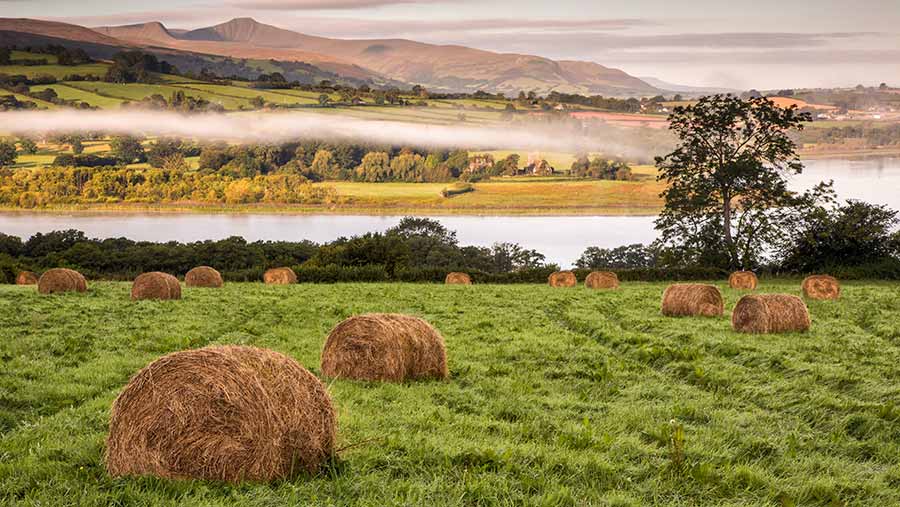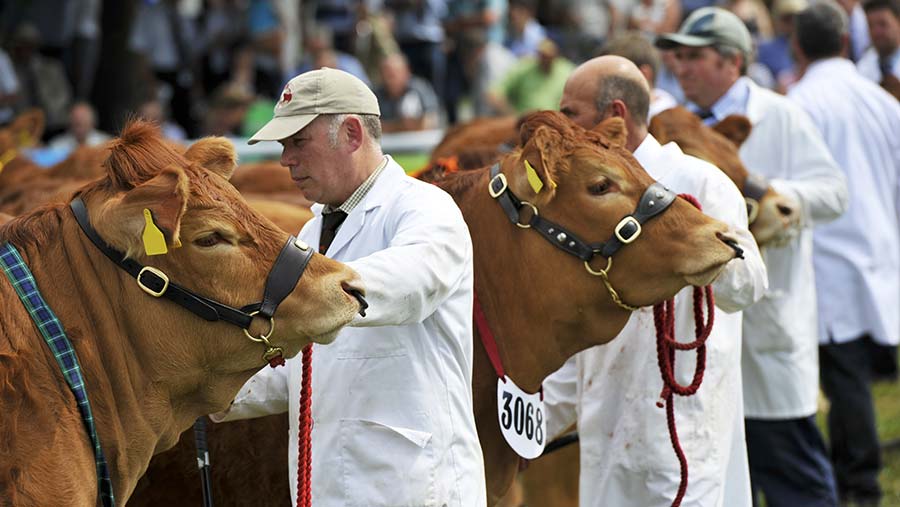5 things England can learn from Wales on farm policy
 © FLPA/Allen Lloyd/Rex/Shutterstock
© FLPA/Allen Lloyd/Rex/Shutterstock Devolution is a process, not a point in time. For nearly 20 years we have seen incremental and individually invisible changes to the way Wales is governed, and land use and farming have often been at the forefront of these changes.
As we move towards Brexit and discuss replacing subsidies in the UK, are there lessons to be learned from Wales?
See also: Defra devolved farm policy talks ‘productive’
1. Collaborative working delivers better outcomes
The most striking difference I have noticed between working in Wales and experiences across the border is the willingness (or maybe it is necessity) of government to engage with partners and stakeholders at a much earlier point in the process.

Rebecca Williams, CLA Cymru director
Take for example the experience of working with Rural Payments Wales to build the payments system – the two years of system design and testing with farming unions and users with a gradual implementation process led to a system that is workable and effective.
2. A one-stop shop for farmers?
Seeking appropriate and quality advice, guidance and support is essential for any businesses, and for farmers in Wales this service has been delivered via the Farming Connect brand.
European funding for developing business plans, encouraging knowledge transfer and facilitation for discussion groups have all been delivered through the same structure to all farms in Wales.
Although not without flaws, the overall concept of a unified service has served the industry well over the past decade.
3. Wales’ well-being leading to English health and harmony

© Design Pics Inc/REX/Shutterstock
For the past few years, in Wales we have been grappling with understanding how the Well-Being of Future Generations (Wales) Act will influence farm businesses.
As the name suggests, the legislation is designed to improve the well-being of the people of Wales now and for future generations – all decisions taken by the public sector (and therefore also funding) should demonstrate how it balances economic, social, environmental and cultural considerations for the benefit of Wales.
The law is in its early days, and we are yet to understand whether it is a shield or a sword, but the potential is significant.
We have been considering our well-being for some time, so it came as no surprise to us that Defra’s consultation is entitled “Health and Harmony”.
4. Sustainable management of natural resources
While farming is unquestionably the most extensive land use in Wales, the Environment (Wales) Act 2016 embedded into our legislation focuses on sustainability in how we use our natural resources.
The focus is increasingly on farming in the context of wider land use; recent grants such as the Sustainable Management Scheme have focused on giving farmers the freedom to collaborate and design environmentally focused outcomes that fit with individual farming practices.
While not embedded into the English legal system in the same way, it is interesting to note that the long-awaited Defra 25-year environment plan follows a similar path, outlining goals that will improve the environment.
It will be interesting to see what approach will be taken in England to turn this ambition into reality.
5. Growing acknowledgement that private land has public value

© Ian Hinchliffe/ REX/Shutterstock
The compromise in receiving public money is accepting that the land is an asset that the public, at large, have vested interests in.
This ranges from environmentalists for conservation, ramblers for walking or the wider public for its views and aesthetic pleasure.
Concepts of payment for public good further enhance this thinking.
Welsh cabinet secretary for rural affairs, Lesley Griffiths, recently outlined her five principles, stating that “the new policy should centre on Welsh land delivering public goods for all the people of Wales”.
With the Defra consultation advocating similar ideas for England, what are the implications and to what extend does it necessitate a new relationship between farmers and the public at large?
Making money remains key
While it is possible to identify differences in policy and practice, it is the nuanced differences based on political leaning developed under the unifying force of membership of the European Union.
While the ability to forge a different direction is part and parcel of devolution, we must not lose sight of the need for all farmers to make money from their assets, regardless of which side of the border their land is located on.
